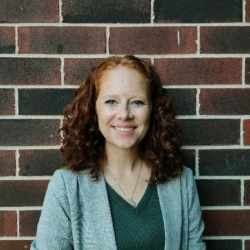Therapy can help you manage stress, improve relationships, and understand yourself better, even if you’re not in crisis. Whether you’re wondering “Do I need therapy?” or “Will it actually help?” Here are honest answers to the most common questions.
FAQ #1: Do I Need Therapy?
If you’re asking this, it’s a signal you should consider starting therapy. You don’t need at huge life event or a traumatic event to see the benefits. Some of the most common reasons people start therapy are:
- You feel stressed or burned out with no outlets to release
- You feel stuck or overwhelmed and you’re not sure what to do
- Life transitions like moving to a new city or starting a new job are taking a toll
- You have unhealthy coping mechanisms like avoidance or you isolate yourself
- You’re unable to create or nurture your relationships
- Your anxiety, sadness, or loneliness are taking control of your life
FAQ #2: Will Therapy Help Me?
Therapy can help everyone. However, its success depends on a few key factors.
First, the quality of your relationship with your therapist, often called the therapeutic alliance, is one of the strongest predictors of positive outcomes in therapy. If you have a strong relationship, you’re more likely to benefit from therapy.
Second, being open to the process matters a lot. A meta-analysis of 99 studies found that higher levels of openness, meaning people who are more receptive and willing to engage, consistently experienced more favorable therapy outcomes across treatment settings.
Feeling nervous or hesitant at first is completely normal, but trust and willingness to engage with therapy is the real secret to success.
FAQ #3: How Do I Choose a Therapist?
This is the million dollar question! As we know, the right therapist matters.
To find your perfect-fit, look for:
- Specialties that match your needs: Every therapist has their own niche, just like every doctor has their own specialty. You have to first identify what you’re looking for. Are you hoping to manage anxiety or depression, work through grief, or strengthen your relationships? Whatever your focus, there are therapists with experience in every specialty to support you.
- Therapeutic modalities that resonate with you: Therapeutic modalities play a significant role in shaping the care you receive. Common modalities such as Cognitive Behavioral Therapy (CBT) and Dialectical Behavior Therapy (DBT) may resonate with different individuals in unique ways, and understanding which approaches align with your needs can deeply influence the effectiveness of your therapeutic journey.
- A therapeutic style that works for you: Maybe you're looking for a therapist whose approach is warm and validating or you’re looking for the opposite, someone who is direct and willing to challenge you. Either way, your therapist should make you feel seen. Therapists have all different kinds of approaches so it’s important to find what works for you.
- Availability that fits your schedule: Someone with appointments in days not weeks and can work around your hectic work schedule or if your childcare falls through.
FAQ #4: Is It Confidential?
Yes, therapy is confidential. Therapists are legally and ethically bound to keep your sessions private, with a few exceptions including:
- You communicate plans to harm yourself or someone else
- There is suspected abuse
- A court orders your therapy records to be released
- You give written consent to share your information
FAQ #5: How Long Does Therapy Take?
It depends on the person, their needs, and their goals. Some people go to therapy for just a few sessions, others see a therapist for years. There’s no one-size-fits-all timeline.
FAQ #6: What If I Don’t “Click” with My Therapist?
It happens and it’s okay. Instead of writing therapy off altogether or assuming it doesn’t work for you, you should try working with a different therapist.
Open up the conversation with your therapist with something like, “I don’t think I’m getting what I want out of our sessions so I’m not sure if this is the right fit for me.” Therapists are trained in navigating this and they don’t take it personally.
Whether you’re feeling overwhelmed or curious about your own patterns, therapy can offer you tools, support, and clarity to navigate all that life throws at you. The key is finding a therapist who’s the right fit and being open to the process. Everyone’s journey is different, and there’s no one “right” way to do therapy, just the way that works for you.
.jpeg)

























